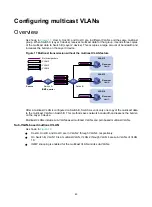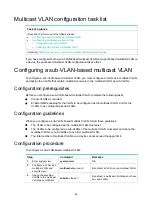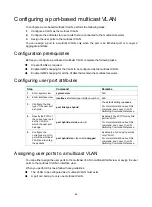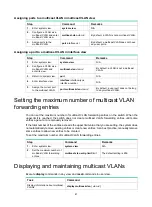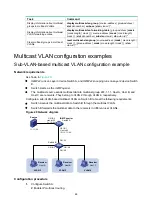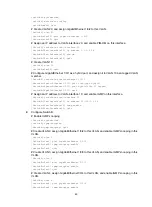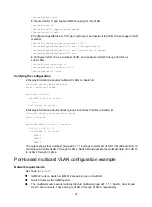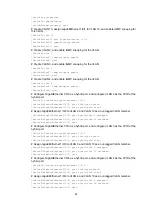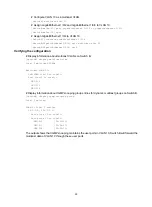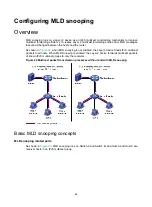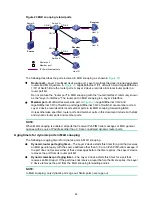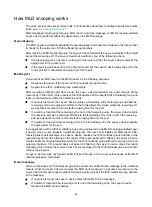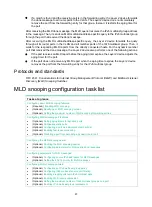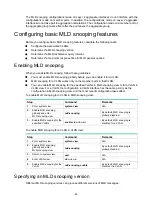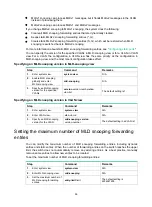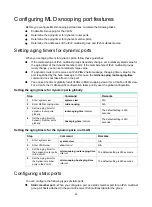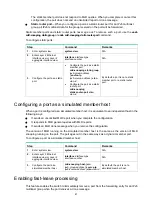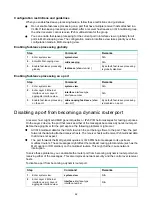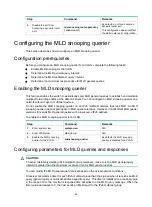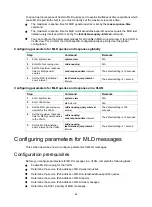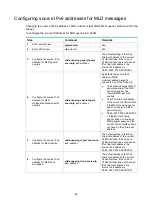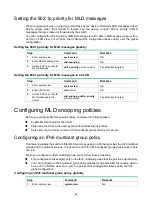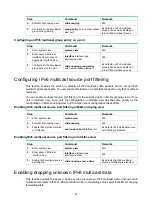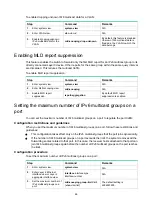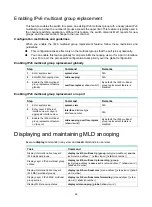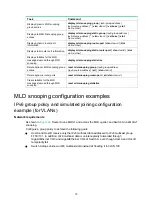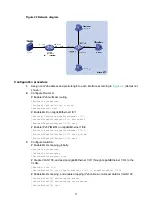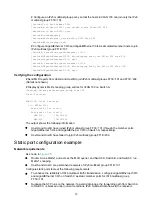
57
•
If a match is found and the receiving port is in the forwarding entry, the Layer 2 device forwards
the done message to all router ports in the VLAN. The Layer 2 device does not immediately
remove the port from the forwarding entry for that group. Instead, it restarts the aging timer for
the port.
After receiving the MLD done message, the MLD querier resolves the IPv6 multicast group address
in the message. Then, it sends an MLD multicast-address-specific query to the IPv6 multicast group
through the port that received the done message.
After receiving the MLD multicast-address-specific query, the Layer 2 device forwards the query
through all its router ports in the VLAN and all member ports of the IPv6 multicast group. Then, it
waits for the responding MLD reports from the directly connected hosts. For the dynamic member
port that received the done message, the Layer 2 device also performs one of the following actions:
•
If the port receives an MLD report before the aging timer expires, the Layer 2 device adjusts the
aging timer for the port.
•
If the port does not receive any MLD report when the aging timer expires, the Layer 2 device
removes the port from the forwarding entry for the IPv6 multicast group.
Protocols and standards
RFC 4541,
Considerations for Internet Group Management Protocol (IGMP) and Multicast Listener
Discovery (MLD) Snooping Switches
MLD snooping configuration task list
Tasks at a glance
Configuring basic MLD snooping features
•
(Required.)
•
(Optional.)
Specifying an MLD snooping version
•
(Optional.)
Setting the maximum number of MLD snooping forwarding entries
Configuring MLD snooping port features
•
(Optional.)
Setting aging timers for dynamic ports
•
(Optional.)
•
(Optional.)
Configuring a port as a simulated member host
•
(Optional.)
Enabling fast-leave processing
•
(Optional.)
Disabling a port from becoming a dynamic router port
Configuring the MLD snooping querier
:
•
(Optional.)
Enabling the MLD snooping querier
•
(Optional.)
Configuring parameters for MLD queries and responses
Configuring parameters for MLD messages
:
•
(Optional.)
Configuring source IPv6 addresses for MLD messages
•
(Optional.)
Setting the 802.1p priority for MLD messages
Configuring MLD snooping policies
•
(Optional.)
Configuring an IPv6 multicast group policy
•
(Optional.)
Configuring IPv6 multicast source port filtering
•
(Optional.)
Enabling dropping unknown IPv6 multicast data
•
(Optional.)
Enabling MLD report suppression
•
(Optional.)
Setting the maximum number of IPv6 multicast groups on a port
•
(Optional.)
Enabling IPv6 multicast group replacement

